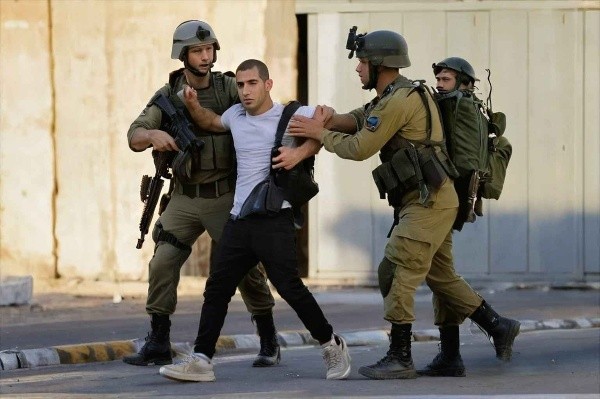The Death of Hamas Leader Yahya Sinwar: What We Know So Far
Israel and the US claim intelligence provided Sinwar’s whereabouts, but this is doubtful.
Loading...

From beatings, to illness and hunger, freed Palestinian minors say abuse rampant in Israeli jails after October 7.
Introduction
The plight of Palestinian children detained in Israeli jails is a grave humanitarian concern that has intensified significantly since the escalation of conflict on October 7. Reports of abuse, neglect, and harsh living conditions have emerged from various human rights groups and agencies, highlighting the dire situation these young detainees face. This article delves into the harrowing experiences of Palestinian minors in Israeli detention, drawing attention to the broader implications of their treatment.
A Childhood Stolen
Hussein's Ordeal
Hussein, a 16-year-old Palestinian boy, spent ten months in detention following an encounter with Israeli forces near Hebron. Shot and subsequently beaten unconscious, Hussein awoke to find himself in a hospital, only to be transferred to Ofer Prison days later. His story is one of many, as hundreds of Palestinian children have been detained under similar circumstances since the conflict intensified in October.
The consequences of his detention are severe. Once an active teenager who enjoyed sports, Hussein now relies on crutches and awaits surgery to repair his damaged joint. His physical injuries are compounded by the psychological trauma of his ordeal, as he struggles to reintegrate into his community and frequently experiences nightmares.
Systematic Neglect and Abuse
Medical and Nutritional Deprivation
Palestinian minors in Israeli detention face an array of abuses, including medical neglect. Hussein and others report inadequate medical attention and insufficient food, often surviving on meager rations that leave them perpetually hungry. Access to clean water is limited, forcing detainees to consume contaminated water from bathroom facilities.
The conditions in these facilities are deplorable, with detainees often exposed to cold, deprived of sleep, and denied basic necessities. The UN Human Rights Office has documented these abuses, emphasizing the urgent need for international intervention.
The Impact on Families
Omar's Despair
For the families of detained children, the anguish is profound. Hussein's father, Omar, recounts the emotional toll of his son's detention, exacerbated by the broader chaos following the October escalation. Despite hopes for his release during a temporary ceasefire, Hussein remains imprisoned, a victim of a conflict that continues to rob Palestinian children of their childhood and future.
A Broader Crisis
Ahmed Abu Naim's Experience
Ahmed Abu Naim, another Palestinian minor, has faced repeated detentions since the age of 15. His experiences highlight the escalating severity of conditions in Israeli jails, where overcrowding, poor hygiene, and abuse are rampant. Children like Ahmed, who was beaten and exposed to tear gas, endure conditions that violate basic human rights.
The practice of administrative detention, where children are held without charge under the pretext of secret evidence, has seen a worrying increase, further complicating the legal and humanitarian landscape.
Conclusion
The stories of Hussein, Ahmed, and countless other Palestinian children underscore a critical humanitarian crisis that demands urgent attention. The international community must advocate for the rights of these minors, ensuring they receive the protection and dignity they deserve. As these children bravely recount their experiences, their voices call for justice and a future free from the shackles of unlawful detention.
BMM - MBA
Israel and the US claim intelligence provided Sinwar’s whereabouts, but this is doubtful.
Tata, who passed away on Wednesday, was known for his humility and his expansive vision.
Israel says the major attacks that levelled multiple residential buildings in southern Beirut targeted Hezbollah’s ‘central command’.
